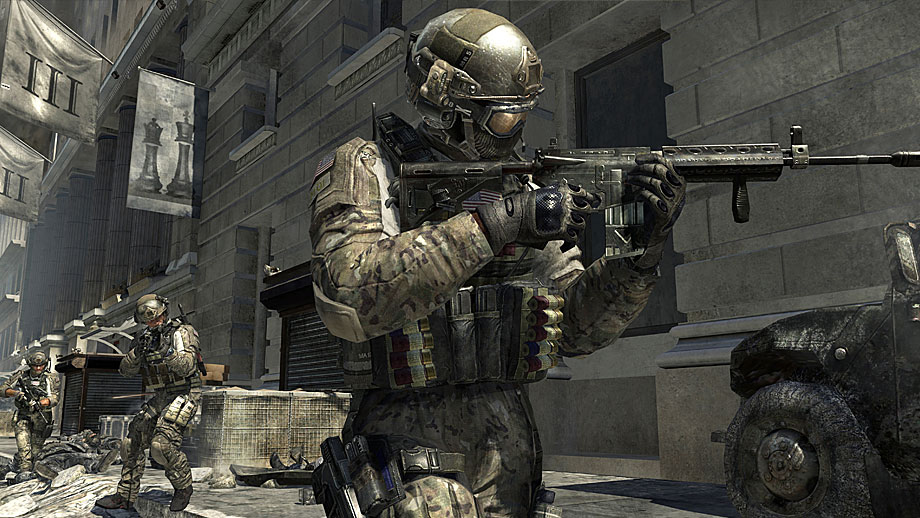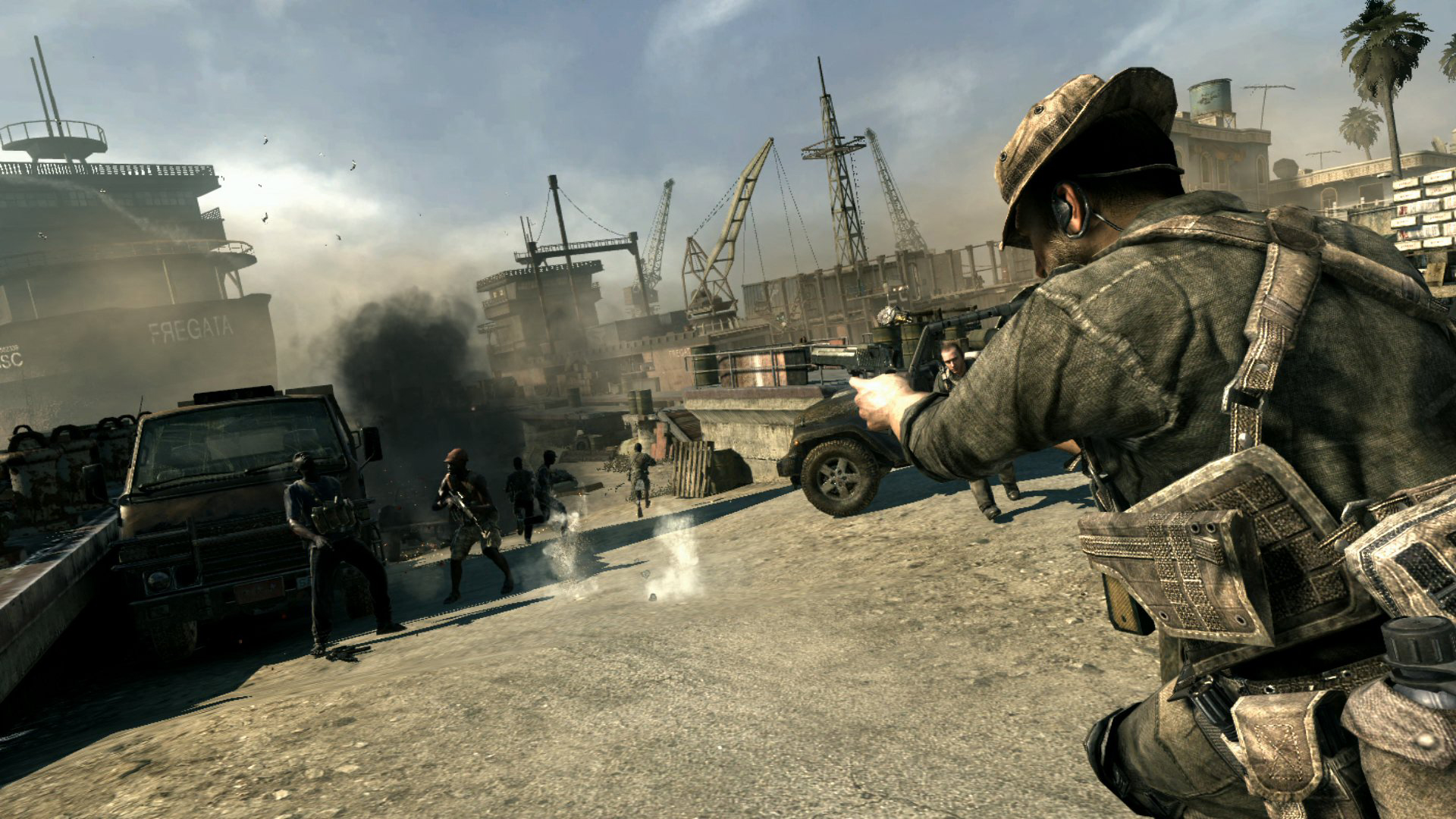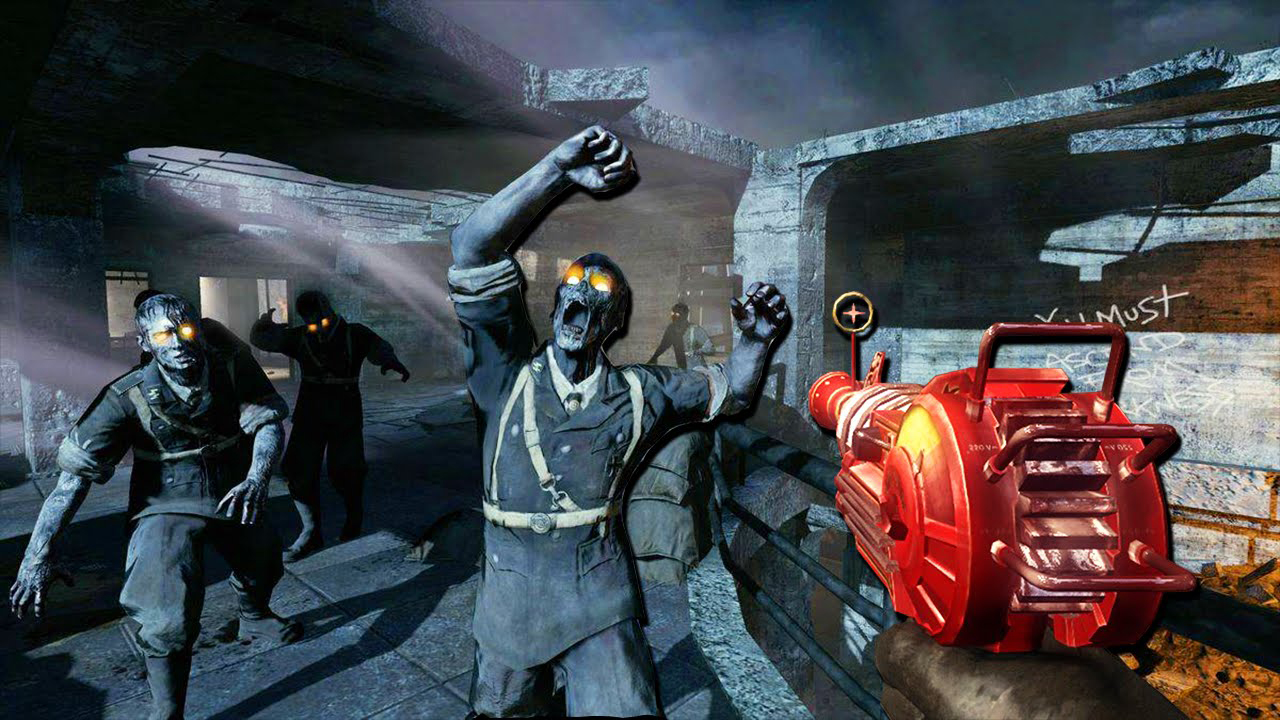The COD Modern Warfare 3 fans who prefer to play on PS3 than buy into Black Ops 4 on PS4
Meet the community attempting to keep one of the most divisive Call of Duty games alive

Jacob and Brandon are two 16-year olds in Ontario, and they're working day and night to resurrect Modern Warfare 3. Every couple of days, they post a missive to the game's mostly dormant subreddit, petitioning the masses for a quick round of Headquarters, or Kill Confirmed, or Team Deathmatch, live and uncut from dilapidating PS3 firmware. For the most part, the queries are left unanswered, which has made them especially eager to jump on a Skype call with me to help get the word out. It's a Tuesday evening, three short days away from the launch of Black Ops 4 and its an audacious reenvisioning of the Call of Duty formula - but these boys barely care, as they tell me exactly how arduous it is to keep Soap MacTavish alive.
"We came back [to Modern Warfare 3] a month or two ago and we noticed a dramatic drop of players. It's very rare to find games now," laments Jacob. "It's a really good game, I love it so much, and it sucks that it takes an hour to get into a match."
In with the old, out with the new
It wasn't always like this. Over the course of the seven years since Modern Warfare 3’s release, Jacob has occasionally orbited back to its multiplayer to find a small, vibrant community of players. Even the best Call of Duty games are only as alive as the weight on its bandwidth - which means that older entries in the franchise can be rendered essentially unplayable as people pick up and move on for greener pastures and higher definitions - but there's always a few holdouts ready and willing to stand against the rising tide. It's a stubbornness that's magnified even more by the unyielding yearly mandate Activision enforces on its triptych of studios, and that's something I've been thinking about lately, as this industry pivots into its nascent, service-driven model. So much work is dumped into every single one of these games, only for them to be savagely supplanted and uprooted by their own creators.

In the grand scheme of things, Modern Warfare 3 didn't distinguish itself particularly well. In 2011, it felt like the first hiccup in Call of Duty's lengthy uncontested reign, which cracked open the door for Battlefield and Counter-Strike. So at first I found it odd that these two boys were so eager to pump blood back into a fairly anonymous vein (for those wondering, no, there's not much of a Call of Duty: Ghosts scene these days). But they quickly remind me that falling in love with a game is rarely a logical process. No, it's all about the incidentals and particulars. For Brandon, Modern Warfare 3 captured a heavy, dark-sky military ennui that slowly drifted out of the series as Black Ops got goofier and Advanced Warfare got Halo-ier. "Now people are jumping around with jetpacks in rainbow kits," he laments.
Jacob has a similar perspective. He was tired of staring at the sky. The verticality of the more recent games were interesting, he says, but you can only eat a crossmap headshot from some wallrunning jamoke enough times before wanting to retire to a quiet, simple life where the only enemies on your mind are those who have both feet stuck firmly to the ground. Modern Warfare 3, he says, is an ideal summation of that formula.
War never changes
I'm not sure any of that is objectively true or untrue, but it is interesting how Activision has picked its spots on the parts of the Call of Duty legacy the company has deemed indispensable. Modern Warfare Remastered was an obvious choice for its historical significance, but fans of other entries in the churn are forced to fend for themselves. There is no better example of this than Call of Duty: World at War, which today remains perhaps the most ephemeral title in the franchise's history. (It was developed by Treyarch, and it shifted the focus back to World War 2 one year after the first Modern Warfare and its incredibly successful pivot to contemporary armories.) Naturally, the game was met with sullen indifference from critics; a retread, a cash-in, a sign of things to come.
And yet, today World of War remains one of the most popular Call of Duty games on the planet. It is kept alive by a goofy, tossed-off multiplayer module, added last-minute by a development team that was nursing a heavy Left 4 Dead habit. The name, of course, was Nazi Zombies, which was then limited to exactly one map.
Weekly digests, tales from the communities you love, and more

Zombies became a phenomenon, and Treyarch's calling card every time it releases a new title. The latest incarnation, Black Ops 4, is a ridiculous, shockingly verbose blunderbuss of nonsense. It features an interlocking RPG-lite class system, a boatload of lore, an eyebrow-raising alchemy mechanic. And yet, there's still an obstinate few who have decided, in their own private canon, that World at War is a cut above the rest. This was hammered home to me when I stumbled into a Discord channel and met an 11-year-old and a 14-year-old who told me as much. "Nostalgia," they each said, when I asked why they weren't playing something else.
"[World at War] is where it all started," says another channel regular, who goes by Carnage. "I think it's the best Zombies because it's the simplest. You can just hop on and play a match, whereas in these other games, they have added so much that if you hop on a game, and you don't know how to use all the new stuff, you’re doomed to fail early on."
Carnage reiterates that it's not necessarily a bad thing that Treyarch has iterated on that original Zombies mode, but then again, you only have your first love once. He also cites the colorful, still-active mod scene, where people continue to import custom maps into that dusty old IW3 engine. Call of Duty will trudge into an endless horizon; hundreds of developers on a ceaseless quest to impress new audiences, to reinvent the wheel. I wonder how they would feel to know that there are many who are content, and will continue to be content, with just the way things are.
Looking for something more modern? Here's where to buy COD Black Ops 4 cheap.
Luke Winkie is a freelance journalist who specializes in interview-driven reporting and long-form feature writing. He's contributed to GamesRadar+ and PC Gamer, of course, but you'll also find his bylines all across the internet. We're talking the Washington Post, New York Times, New York Magazine, GQ, Slate, Vice, Rolling Stone… honestly, the list just goes on and on, and for good reason.


